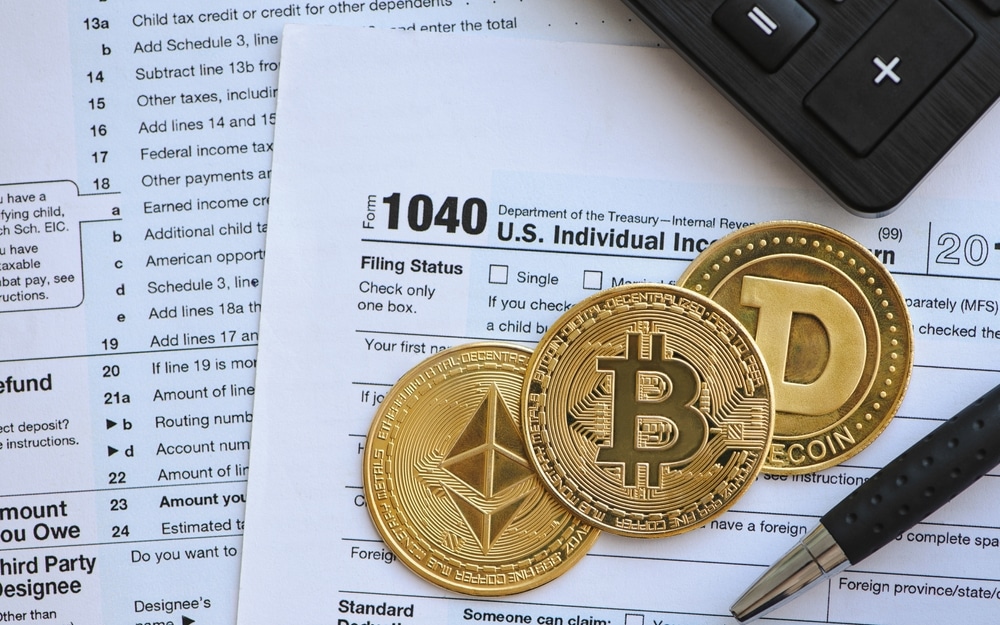
IRS Proposal for Tax Form Raising Concerns, Threatens to Erode Pseudonymity in Crypto
The US Internal Revenue Service (IRS) draft form states that the agency mandates self-custodial wallet addresses when decentralized finance (DeFi) users file taxes.
The draft version stimulated fear and uncertainty as the crypto industry questioned the motive of the revised IRS form. The crypto community is concerned that some sections within the document require American DeFi users to disclose their self-custodial wallet addresses to the IRS.
IRS proposes that Form 1099-DA mandates filing for crypto transactions sourced from the broker. The exact meaning of the proposal is uncertain, though it is scheduled for implementation in 2025.
Crypto Industry Challenge IRS Proposal to Classify DeFi Traders Brokers
Analysts consider that the draft version will likely classify crypto exchanges among brokerages by the IRS. The proposal traces back to November last year when crypto lobbyists desired that the taxman was angling towards classifying DeFi traders brokers.
The fear seems confirmed with the draft IRS 1099-DA form capturing a box where the party filing must disclose the broker type involved in the crypto transaction they report. Besides, one section requires disclosure of the unhosted wallet provider, implying the nonaffiliated self-custodial addresses with any third party.
Legal experts within the digital assets community decried the intention of the IRS in its plot to classify the DeFi protocols as brokerage firms similar to Robinhood and Charles Schwab. The legal experts fault the IRS motive, indicating that the DeFi protocol runs on automated software whose design seeks to safeguard the user’s privacy.
A substantial section of the crypto community appeared unsettled by the prospect that DeFi users within Uniswap will soon disclose personal details of similar brokerage firms. Builders and traders jointly declared the move could ultimately strangle the pseudonymity concept.
IRS Threatens Killing Pseudonymity in US DeFi Ecosystem
Coin Center’s spokesperson lamented that including an open-source wallet is erroneous since the software providers lack the basic qualification to broker transactions. The executive from the crypto lobbying group considers the broker classification unconstitutional as per the First and Fourth Amendment provisions.
The Coin Center spokesperson anticipates that future versions will exclude such requirements, given the apparent threats to pseudonymity.
It remains to be seen when the IRS will amend the proposal before January 2024. Previously, the announcement of a move to expand broker definition to capture crypto firms and projects opened the months-long debate.
The last fall proposals prompted the crypto lobbying groups to urge the IRS to amend the broker definition. The lobbyists argued that the scaled definition risked killing the DeFi ecosystem in the US.
The lobbying groups added that it was nearly impossible for the decentralized exchanges (DEXs) to spot and furnish personal information as their user bases are anonymous.
The proposed 1099-DA form indicates the suggestions by the crypto lobbying groups were baseless, thus failing to convince the IRS.
The CoinTracker’s head of tax strategy, Shehan Chandrasekera, admitted that IRS proposals eroded the privacy-preserving trait of crypto in the US. The crypto tax specialist tore the draft IRS form as retrogressive to the DeFi ecosystem as it will kill the pseudonymity.
Crypto Industry Filing Preemptive Suits
However, Variant Fund chief legal executive Jake Chervinsky avoided the despair portrayed by fellow experts. The legal officer indicated via a post on X that the IRS hardly has the ultimate word on whether to classify DeFi users as brokers.
Chervinsky indicated that the IRS’ proposals would be heard in court like other unresolved crypto questions. The legal expert added that rules that lack literal sense rarely survive when scrutinized in court.
Chervinsky indicated the likelihood that the crypto community would file lawsuits. Such a stance manifests in the suit filed by the Blockchain Association and the Crypto Freedom Alliance of Texas, which challenges the scaled definition of dealer rule by the Securities and Exchange Commission (SEC).
The suit filed on Tuesday, April 23, alleges that the SEC exceeded its authority and approved a vague rule in its scope that could adversely affect the crypto-market participants.




